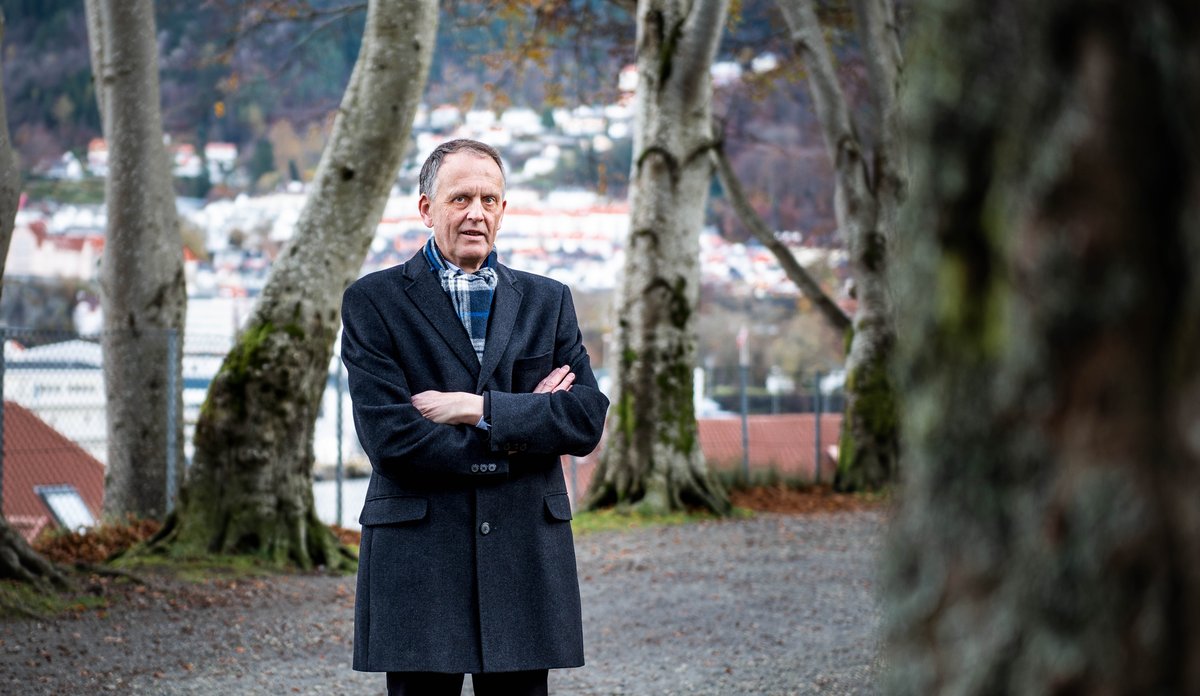Ocean Science Decade: From talk to action

Peter Haugan er forskingssjef og programleiar ved Havforskingsinstituttet, og leier den nasjonale ekspertgruppa for FN sitt havforskingstiår i Noreg.
Photo: Christine Fagerbakke / Institute for Marine ResearchPublished: 12.11.2019 Updated: 26.11.2019
“It’s not because the ocean needs it, but because the planet does.”
That’s how Peter Haugan explains the UN General Assembly’s decision to declare 2021-2030 the Decade of Ocean Science for Sustainable Development.
“We need healthy oceans for the sake of the whole planet’s future. So we need to learn about and study the oceans in order to find new solutions that enable us to use them sustainably. That means cooperating”, says Haugan, whose day job is as a research group leader at the Institute of Marine Research (IMR).
National research, global contribution
Cooperation, both between countries and across disciplines, is one of the key elements of the Decade of Ocean Science. The expert committee’s job is to suggest how Norwegian marine scientists can become even better by combining their forces and how our expertise in ocean science can make a global contribution.
The committee will submit its draft report by February, and then take it on a tour of Norway to get feedback from a variety of research communities. The final report, containing specific proposals on how Norway can contribute to the Decade of Ocean Science, should be ready by summer.
Norway’s work should help to promote the six outcomes that the UN is aiming for: a clean ocean; a safe ocean; a healthy ocean; a transparent ocean; a predicted ocean; and a productive ocean.
From studying the ocean to new solutions
The focus on outcomes is the big difference from the previous Decade of Ocean Science, in the 1970s. Then it was all about “exploring the ocean”.
Fifty years later there is more of a focus on applied research, in order to meet the demands of governments and societies. This is reflected in the slogan: “The Science We Need for the Ocean We Want”.
“There’s an urgent need for sustainable development in the ocean. It’s not enough just to do basic research in order to learn more; we must help to find solutions. That’s why it’s important to look at marine research in a wider context that also encompasses economics and the social sciences”, says Haugan, who is delighted with the wide range of backgrounds of the people on his committee.
From talk to action
Haugan identifies three specific areas where he believes that Norway – and the IMR – can make an important contribution during the Decade of Ocean Science:
- Finding sustainable ways to increase global aquaculture production, and perhaps particularly in relation to molluscs and other species that don’t need active feeding. Here the IMR has important expertise on areas such as environmental conditions, nutritional value and health.
- Drawing up and justifying global and regional requirements for scientific assessments with respect to the sustainability of marine-related industries. Here the IMR has extensive experience of providing scientific advice for national resource management plans, the “traffic light” system for sea lice and so on.
- Collecting the data needed to map and classify all of the major marine ecosystems in the oceans. Here the IMR can draw on its experience from the Mareano programme and its work on integrated ecosystem assessments.
The expert committee will have an intensive schedule over the coming half year, but the chair is well prepared: he has already been working on planning the Decade of Ocean Science at the UN level for several years.
“Now is the time to go from talk to action. I’ve been looking forward to that for a long time”, concludes Haugan.